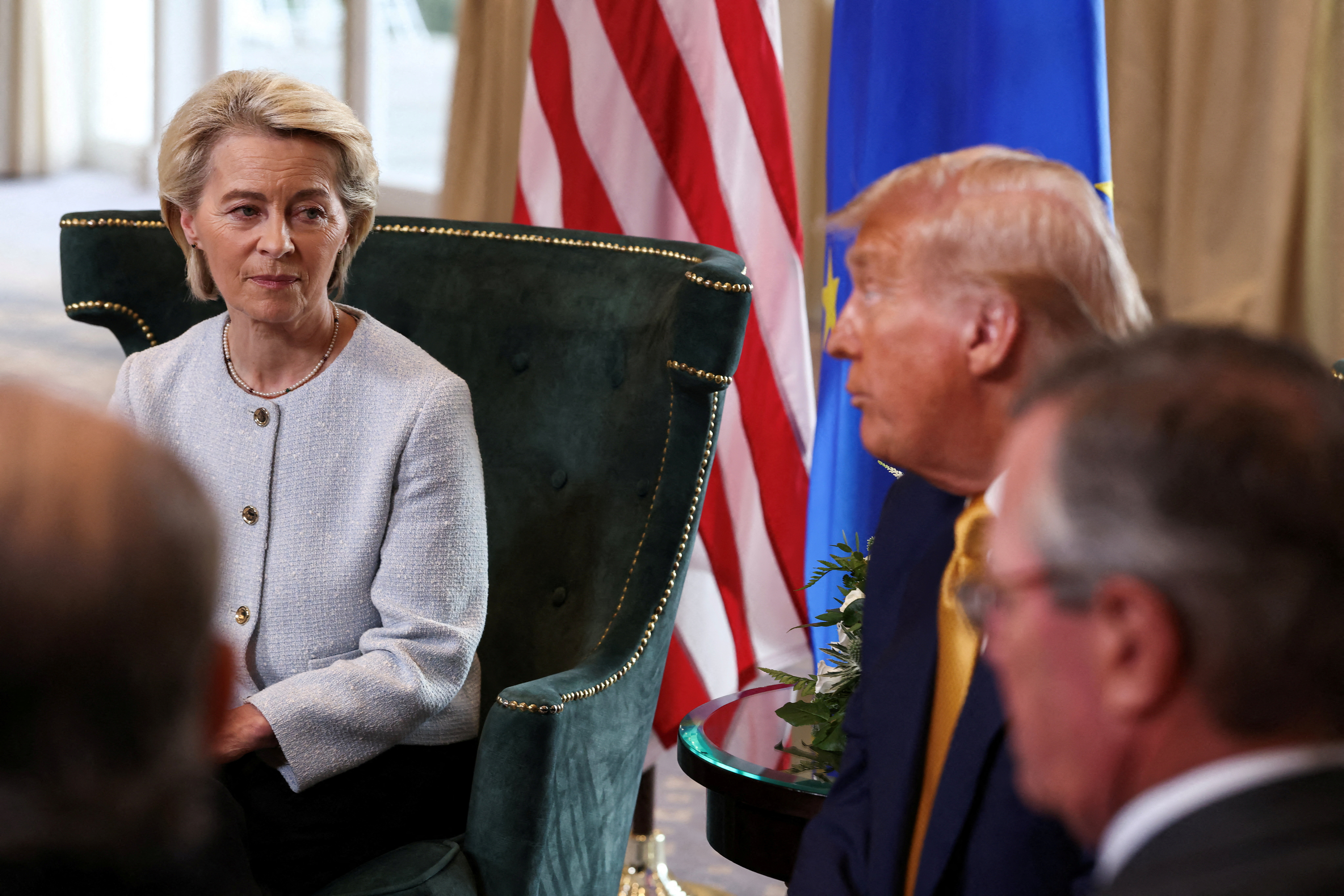The general consensus is that the US-EU trade deal agreed on Sunday by US President Donald Trump and European Commission President Ursula von der Leyen was a triumph for US, whichever way it was looked at. The deal imposed an across-the-board tariff of 15 per cent, three times higher than the 4.8 per cent it has been but this was still better than the 30 per cent that Trump threatened to impose from August 1 if no agreement had been reached.
Apart from the higher tariffs, the EU also agreed to huge purchases of American fossil fuels and weaponry – worth hundreds of billions of dollars – for the duration of the Trump presidency. It is a lop-sided deal in which most EU products exported to the US will face much higher tariffs than US products exported to the Union. This is why in Europe the agreement was labeled a ‘humiliation’, a ‘capitulation’ and a ‘surrender’ among other things.
France’s Prime Minister Francois Bayrou was scathing in his criticism. “It is a dark day when an alliance of free peoples, united to affirm their values and defend their interests, resort to submission,” he said in a post on ‘X’. Jordan Bardella, the president of the far-right National Rally, said that von der Leyen “accepted yesterday the commercial surrender of Europe, to the detriment of our exporters, farmers and industrialists.”
France and Spain had demanded a more robust stance in the trade talks, but Germany, Italy and Ireland had urged restraint in order to protect their economic interests. In the end, the deal is said to protect the interests of German car manufacturers better than those of Mediterranean food and drink producers. The truth is that there were divisions between member-states and there was no way the president of the commission could keep them all satisfied.
Von der Leyen put a positive spin on the lop-sided deal, saying it created “certainty in uncertain times” and ensured stability and predictability for businesses on both sides of a trading relationship worth $1.7 trillion, the biggest in the world. Tariffs of 15 per cent are better than tariffs of 30 per cent and a trade war taking place, but there is no denying that the EU has accepted a subservient role, giving in, very easily to Trump’s bullying and threats.
The Commission president even parroted Trump’s narrative that US-EU trade was unbalanced and needed to be rebalanced. While the EU enjoys a big trade surplus in goods, the US enjoys a large surplus in service trade which was not addressed by the trade talks. And on pharmaceuticals a dispute is looming. Von der Leyen said pharmaceuticals were covered by the 15 per cent tariff while Trump said they were not.
The deal, economists say, would knock 0.5 per cent off the EU’s GDP, but refusing, giving in to Trump and engaging in a trade war, which some countries supported, would have been much costlier for Europe. For the Commission president accepting this very public humiliation by Trump was the only pragmatic choice.






Click here to change your cookie preferences